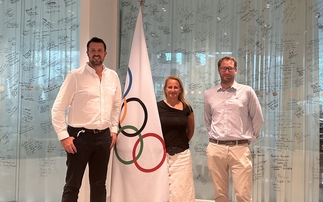Credit: iStock
Foundation expects researchers to detail energy consumption, equipment reuse, and recycling steps when seeking funding under new sustainability policy
Global health research foundation Wellcome has today announced it will ask researchers to explain how they plan to reduce energy consumption, reuse equipment, and recycle waste products when applying for grant funding.
Under a policy launched to coincide with a new concordat from UK research organisations, recipients will be required to address the potential environmental impact of their work and ensure they use the most sustainable approaches at their disposal.
For example, Wellcome will require those in lab-based environments to achieve the minimum level of accreditation offered by high-quality sustainability schemes such as LEAF and My Green Lab by the end of 2025.
Moreover, desk, field, clinical, and other researchers will be asked to use tools appropriate to their setting to assess the environmental impact of their work.
There are also additional expectations for organisations based in high-income countries, such as maintaining logs of existing and left-over resources in a bid to promote resource efficiency.
Wellcome is one of the world's biggest funders of health research and plans to spend £16bn through to 2032 to advance scientific discovery and tackle the world's most urgent health issues.
Under the new policy, the trust will also ask new grant applicants to consider the environmental impact of their research approaches alongside the financial cost. This could mean making more environmentally responsible choices even if there is a higher upfront cost. Existing grant-holders will be able to use existing funds to cover these costs, the Foundation explained.
Research carried out with Wellcome funding falls under the organisation's Scope 3 emissions, which it has committed to reduce as part of a wider programme to reach net zero by 2050 via interim targets to achieve net zero across Scopes 1 and 2 by 2030.
In future, Wellcome has said it will work with researchers and organisations to understand their environmental impact in greater detail and paint a more accurate picture of its indirect emissions.
"Health research has a crucial role in lessening the impacts of the climate crisis, yet rightly there is an increasing focus on the environmental impact of research itself," said Alyson Fox, director of research funding at Wellcome.
A report published in August 2023 by RAND Europe, commissioned by Wellcome, found there are currently 146 initiatives in place to reduce the environmental impact of health research, but it claimed progress is often sustained by the goodwill of volunteers and that more could be done to build engagement at more senior levels of the research sector.
"The report that Wellcome commissioned through RAND Europe last year highlighted the enthusiasm from across the sector to make change but also the need for meaningful leadership to create the momentum required," Fox added.
The changes to Wellcome's policy coincide with the launch of a voluntary environmental sustainability concordat developed by more than 25 organisations across the UK research and innovation sector. An initial group of 17 signatories and six supporters have committed to progressively embedding environmental sustainability efforts into all research and innovation practices.
Signatories agree to address six priority areas such as maintaining transparency about the environmental impacts of research output and finding new climate-conscious, low-carbon approaches.
There is also an expected commitment from signatories to publicly share how they will deliver sustainability aims and publish annual summaries of progress.
"As an initial signatory of the new environmental sustainability concordat, Wellcome shares the ambition of others in the UK research and innovation sector," Fox added. "Our new policy is a first step but sets a clear path. We look forward to continuing to support world-class science in an environmentally responsible way."
As a fellow signatory of the concordat, Cancer Research UK has also developed new requirements for grant applicants and core-funded institutes to demonstrate the environmental sustainability of their labs.
"We have a key part to play in reducing the environmental impact of our research by addressing how the labs and facilities we fund operate, enabling researchers to carry out their activities in a sustainable manner," said Iain Foulkes, executive director of research and innovation at Cancer Research UK. "The concordat will allow us to work together to build a more sustainable research system."
You can now sign up to attend the fifth annual Net Zero Festival, which will be hosted by BusinessGreen on October 22-23 at the Business Design Centre in London.









